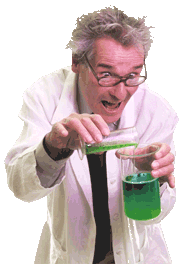At AllTheScience, we're committed to delivering accurate, trustworthy information. Our expert-authored content is rigorously fact-checked and sourced from credible authorities. Discover how we uphold the highest standards in providing you with reliable knowledge.
What are Organic Compounds?
Organic compounds are the complex compounds of carbon. Because carbon atoms bond to one another easily, the basis of most organic compounds is comprised of carbon chains that vary in length and shape. Hydrogen, nitrogen, and oxygen atoms are the most common atoms that are generally attached to the carbon atoms. Each carbon atom has 4 as its valence number which increases the complexity of the compounds that are formed. Since carbon atoms are able to create double and triple bonds with other atoms, it further also raises the likelihood for variation in the molecular make-up of organic compounds.
All living things are composed of intricate systems of inorganic and organic compounds. For example, there are many kinds of organic compounds that are found in nature, such as hydrocarbons. Hydrocarbons are the molecules that are formed when carbon and hydrogen combine. They are not soluble in water and easily distribute. There are also aldehydes – the molecular association of a double-bonded oxygen molecule and a carbon atom.

There are many classes of organic compounds. Originally, they were believed to come from living organisms only. However, in the mid-1800s, it became clear that they could also be created from simple inorganic proteins. Yet, many of the organic compounds are associated with basic processes of life, such as carbohydrates, proteins, nucleic acids, and lipids.
Carbohydrates are hydrates of carbon and include sugars. They are quite numerous and fill a number of roles for living organisms. For example, carbohydrates are responsible for storing and transporting energy, maintaining the structure of plants and animals, and in helping the functioning of the immune system, blood clotting, and fertilization – to name just a few.
Proteins are a class of organic compounds that are comprised of carbon, hydrogen, nitrogen, and oxygen. Proteins are soluble in water. The protein itself is composed of subunits called amino acids. There are 20 different amino acids found in nature – organisms can convert them from one to another for all but eight of the amino acids.
Lipids comprise a class of organic compounds that are insoluble in water or other polar solvents; however, they are soluble in organic solvents. Lipids are made of carbon, hydrogen, oxygen, and a variable of other elements. Lipids store energy, protect internal organs, provide insulation in frigid temperatures, among other features. Lipids can be broken down into several groups ranging from triglycerides, steroids, waxes, and phospholipids.
Nucleic acids are another group of organic compounds. They are universal in all living organisms. In fact, they are found in cells and viruses. Some people may not consider a virus to be a living thing. Friedrich Miescher discovered nucleic acids in 1871.
AS FEATURED ON:
AS FEATURED ON:










Discussion Comments
Where is a list of organic compounds?
What are Organic Compounds made up of? (Elements of The Periodic Table)
What are the characteristics and functions of the different inorganic and organic compounds?
The following are organic compounds: carbohydrates, proteins, nucleic acids (DNA and RNA) and lipids.
what are the three main organic compounds?
Do you know any organic radicals? [and please explain what they are]
I get that naming organic compounds is difficult, but couldn't you put something in here?
can you explain the decomposition of living things more? please.
can you list some of the properties of organic compounds, like look, smell boiling point, feel etc.?
Turnips, carrots, leeks, potatoes, tomatoes --
these are all organic.
I don't know what organic compounds are, but i eat organic vegetables because i am a vegetarian.
Hm. Can you post here the list of organic compounds? :) Please!
Post your comments